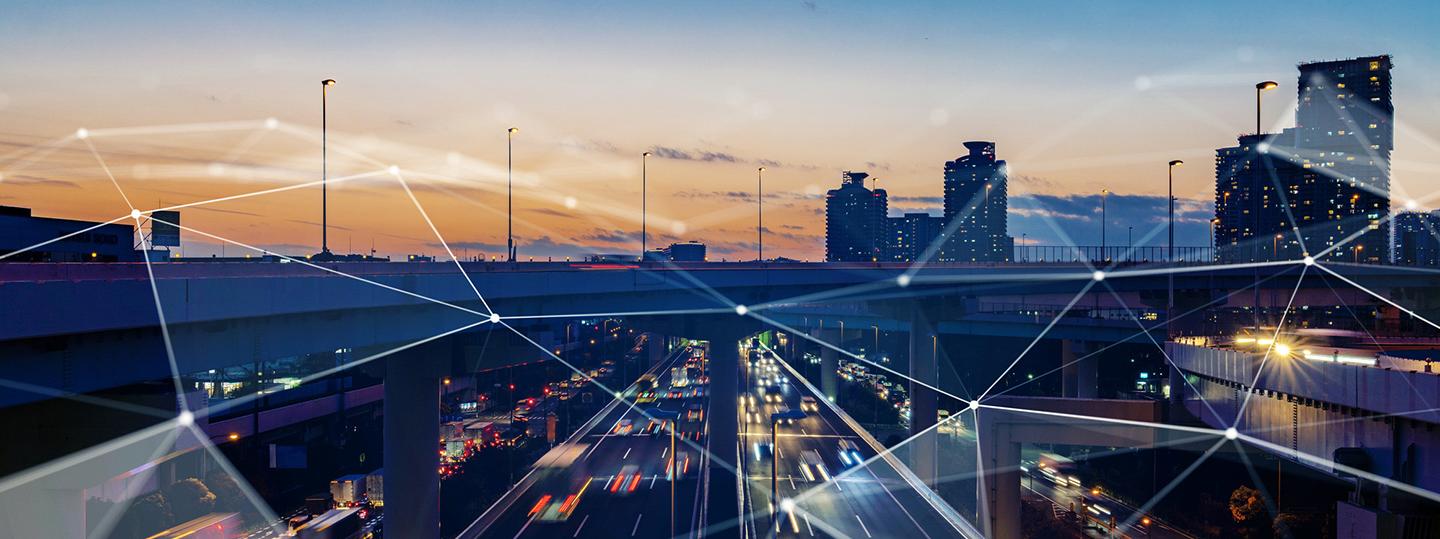
Smart technologies for the smart city
Guest commentary
Sören Högel, Head of Digital Solutions at Wuppertaler Stadtwerke (WSW)
Efficient, safe and sustainable: Intelligent technology not only drastically reduces energy consumption and operating costs, it also reduces light pollution and improves the quality of life of the residents of smart cities.
Many infrastructure in cities, in buildings, in traffic, in the lighting system as well as in the water and energy supply have so far been largely unconnected. Thus, there is a high potential to address the requirements for cost reduction and reduction of CO2 emissions – for the benefit of people, nature and the environment, through modern communication infrastructure.
The residents are also deliberately looking forward: Most of them are well informed about savings and benefits of urban digitalization processes and expect more transparency and the possibility of added value. According to a bitkom study, the majority of the population wants intelligent solutions in public areas of life and more detailed insights into environmental data.
Smart lighting and LoRaWAN
92 % of the population in Germany are in favor of intelligent street lighting, which automatically adjusts to the given lighting conditions and regulates the demand "in a forward-looking manner". At the Wuppertaler Stadtwerke (WSW) we are already there: As part of a pioneering pilot project, we efficiently redesigned the existing infrastructure of the Schöller/Dornap district by integrating a digitally networked lighting system.
Together with ENGIE Deutschland, we are taking new steps with this innovative modernization of the street lighting system: When the conversion is completed at the end of 2021, the Schöller/Dornap quarter will shine in the smart light of 224 dimmable LED lights as soon as it becomes dark. The street lights integrated into the Internet of Things (IoT) are part of the existing LoRaWAN (Long Range Wide Area Network) – a network that links intelligent system control to the real world and runs the WSW.
Reduce costs, increase security
The smart street lighting recognizes its surroundings and the intelligent technology adapts the light intensity to the situation and responds to potential sources of danger in traffic.
The light management system, newly installed in Wuppertal, uses sensors to analyze the traffic situation at night on the streets and to register the movements of pedestrians. The light intensity in the quarter is dimmed to a minimum during the night hours. The system only switches to full power when required. The central control unit also differentiates between confusing intersections or crossings and quiet streets, each of which can be illuminated differently. This prevents unnecessary light pollution.
Intelligent technology should also provide valuable support during maintenance and operation: The new system automatically reports failures and malfunctions to the system, which can now be quickly fixed. This ensures that sections of the route are not in the dark for a longer period and compromise the traffic situation.
The switch to intelligent street lighting not only lowers the running operating and maintenance costs due to the energy-saving and durable LED lights. It also guaranties greater public safety and the reduction of light pollution and CO2 emissions.
On climate neutrality with smart city technology
The innovative sensor technology in our pilot project not only determines the light requirement and thus significantly reduces energy consumption and light pollution. The central system also stores data on:
- Temperature
- Air humidity
- Particulate matter
- Noise level
The collection of data gives us information about the weather situation and makes it possible to detect approaching thunderstorms – as these usually affect the light conditions. In addition, the data provide important insights into the development of particulate matter and noise. On the basis of the data obtained, the city administration can draw conclusions about traffic volume and develop intelligent regulation concepts.
This real-time data is also available on the Internet around the clock for residents and interested parties. They provide continuous access to the progress of the measurements.
Smart lighting: Healthier neighborhood for people, nature and the environment
Continuous night lighting not only negatively affects the operating costs and the CO2 footprint of a city, but also the well-being of people and animals. Permanent brightness disturbs the natural biorhythm. For example, nocturnal animals no longer recognize the starry sky. Smart lighting technology and dimmed light beams counteract this negative effect.
With our demand-oriented lighting concept, we want to reduce light pollution and create a much more pleasant and healthy neighborhood not only for road users, but also for residents.
Smart City Management: ENGIE supports cities in their digital transformation
Together with our long-standing partner ENGIE, we have successfully taken a decisive step towards climate neutrality and cost reduction. There is a lot of potential in the connected city: In addition to intelligent lighting management, the LoRaWAN can also integrate smart building and smart mobility concepts. ENGIE Deutschland provides intelligent solutions for smart technology projects: In addition to reliable hardware and software, this includes all necessary services.
In Wuppertal, the smart integration of digital systems into the existing infrastructure has got off to a successful start. The further development of our pilot project will bring new challenges. We look forward to working together with the municipal actors and our cooperation partners to address these issues.
Our Expert











